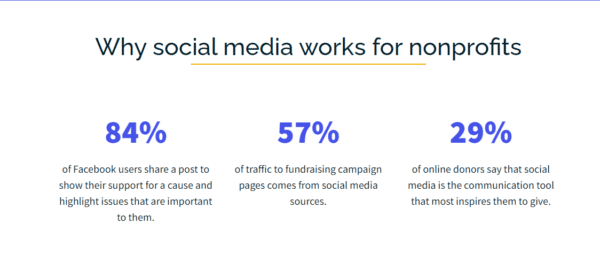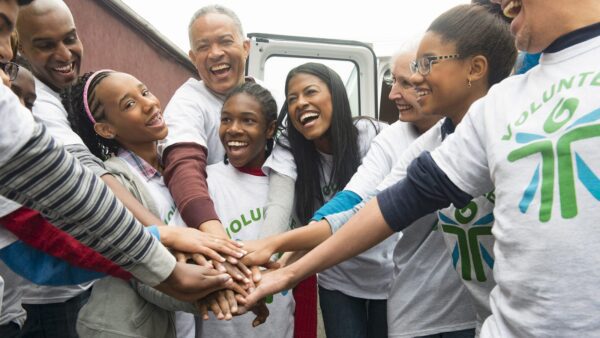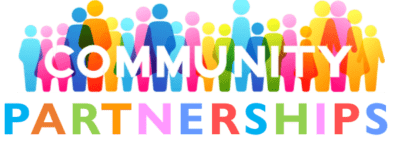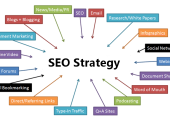Nonprofit event promotion is one of the several fundamental marketing strategies to fundraise and raise donations for your cause as a nonprofit organization. You know that fundraising is an essential part of your community mission because you use the funds to run operations. Hosting a nonprofit event is a great way to raise funds, educate attendees, and bring your community together. However, promoting your event effectively can be a challenge. If people don’t know about your event, they won’t attend, and you won’t meet your fundraising goals.

That’s where nonprofit event promotion comes in. By promoting your event effectively, you can reach a wider audience, generate buzz, and increase attendance. But how do you do it? In this article, we’ll explore some tips and strategies for promoting your nonprofit event. From leveraging your donor data to creating a memorable event name, we’ll cover everything you need to know to make your event a success. So let’s get started.
Understanding Nonprofit Event Fundamentals
In nonprofit event promotion, it’s important to start with the basics. Defining your event goals, budgeting and financial planning, and setting the event date and planning timeline are all essential components to consider.
Defining Your Event Goals
Before you begin planning your nonprofit event, it’s important to define your goals. What do you hope to achieve with this event? Are you looking to raise funds, increase awareness, or engage with your community? Clearly defining your goals will help you make decisions about everything from the event format to the marketing strategy.
Budgeting and Financial Planning
Budgeting and financial planning are crucial to the success of any nonprofit event. These two dynamics are also essential when developing a marketing strategy, which nonprofit event promotion is. Start by creating a detailed budget that includes all anticipated expenses, such as venue rental, catering, and marketing materials. Be sure to also consider potential revenue streams, such as ticket sales and sponsorships. By carefully managing your finances, you can ensure that your event is both successful by ensuring a good return on investment, and financially sustainable.
Setting the Event Date and Planning Timeline

When setting the date for your nonprofit event, consider factors such as the availability of key stakeholders, competing events in the area, and seasonal considerations. Once you have selected a date, create a detailed planning timeline that outlines all of the tasks that need to be completed leading up to the event. This will help you stay organized and ensure that everything is completed on time.
Building Your Promotion Strategy
To ensure that your nonprofit event promotion is successful, you need to have a solid marketing strategy in place. Below are some key steps to building a strong strategy for your nonprofit event promotion.
Identifying Your Target Audience
Audiences play a crucial part in any form of marketing. The first step in building your nonprofit event promotion strategy is to identify your target audience. Who are you trying to reach with your event? What are their interests and motivations? How do the interests align with your nonprofit’s mission? Once you have a clear understanding of your audience, you can tailor your marketing efforts to reach them more effectively. Consider creating buyer personas to help you better understand your target audience. In nonprofit event promotion, buyer personas are detailed profiles of your nonprofit’s donors and recipients that you intend to engage with.

Developing a Marketing Strategy
Once you have identified your target audience, you need to develop a marketing strategy that will reach them effectively. This may involve a combination of digital marketing, advertising, and other promotional tactics. Consider using social media to reach a wider audience, or partnering with other organizations to expand your reach. Incorporating influencer marketing can also boost your nonprofit event promotion tremendously because you will be tapping into the audiences of the influencers whose interests align with your nonprofit’s goals for the event and overall mission. You may also want to consider using paid advertising to reach a larger audience.
Creating Engaging Content
To capture your audience’s attention and keep them engaged, you need to create compelling content that will resonate with them. This may include blog posts, social media updates, videos, and other types of content. Make sure your content is informative, engaging, and relevant to your target audience.
Leveraging Digital Marketing Tools
Contemporary digital marketing requires a proper understanding and integration of digital marketing tools for success. To maximize the reach of your nonprofit event promotion and impact, it’s essential to leverage digital marketing tools. Here are some effective ways to promote your event online.
Utilizing Social Media Platforms

You can effectively leverage social media platforms like Facebook, Twitter, TikTok, and Instagram for your nonprofit event promotion. Through these platforms, you can create event pages, share updates, and engage with your audience. By using relevant hashtags and targeting the right audience, you can increase your event’s visibility and attract more attendees.
To make the most of social media, you should post engaging content regularly, such as behind-the-scenes photos, testimonials, and event teasers. You can also partner with influencers, sponsors, and other organizations to expand your reach.
Effective Email Campaigns
Email campaigns are a cost-effective approach for nonprofit event promotion. You can use email to announce the event and send invitations, updates, and reminders or follow-ups to create excitement among your audience. To make your email campaign effective, you should segment your email list, personalize your messages, and use compelling subject lines and calls-to-action.
You can also use email to drive ticket sales and donations by offering early-bird discounts, limited-time offers, and exclusive perks.
Optimizing Your Event Landing Page
In nonprofit event promotion, your event landing page is an essential tool to convert visitors into attendees. You should optimize your landing page for search engines, mobile devices, and user experience. Your landing page should include all the essential details about your event, such as date, time, location, agenda, speakers, and sponsors. A lack of any of the dynamics visitors to your site are looking for is likely to result in a high bounce rate and impede the realization of the goals of the nonprofit event promotion efforts.

You can also use your landing page to showcase your organization’s mission, impact, and achievements. By using compelling visuals, testimonials, and social proof, you can persuade visitors to register for your event. Success stories and images of previous events can spark the desired interest among those who visit your website and make the nonprofit event promotion strategy effective.
Engaging the Community and Sponsors
To make your nonprofit event successful, you need the support of the community and sponsors. Engaging them is crucial to ensure that your event runs smoothly and achieves its goals. Here are two ways to engage the community and sponsors:
Fostering Relationships with Sponsors
Sponsors are an essential part of any nonprofit event. They provide financial support, in-kind donations, and other resources that make your event possible. This requires thoughtful donor segmentation for successful outcomes. Building strong relationships with sponsors is crucial to ensure their continued support year after year.
To foster relationships with sponsors, you should:
- Be transparent and honest about your organization’s goals and how the sponsor’s support will help achieve them.
- Provide value to sponsors by offering them exposure and recognition in your event marketing materials and during the event itself.
- Follow up with sponsors after the event to thank them for their support and share the impact of their contribution.
By building strong relationships with sponsors, you can create a win-win situation where both your organization and the sponsor benefit from the partnership. Continually, they can also become a significant part of your subsequent nonprofit event promotion processes.
Community Involvement and Outreach
The community is the backbone of any nonprofit organization, whether as donors or recipients. Engaging the community is essential to ensure that your nonprofit event is well-attended and achieves its goals. Here are some ways to involve the community in your event:
- Reach out to local businesses and organizations to ask for their support and involvement in your event.
- Use social media and other marketing channels to spread the word about your event and encourage community members to attend.
- Offer volunteer opportunities to community members who want to get involved in your organization’s mission.
- Provide opportunities for community members to donate to your organization and support your cause.

By involving the community in your event, you can create a sense of ownership and pride among community members, which can lead to increased support for your organization in the future.
Evaluating and Enhancing Event Impact
Your nonprofit event is over, and you’ve raised funds and awareness for your cause. But how do you know if your event was a success? Evaluating and enhancing the impact of your nonprofit event promotion is crucial to ensure that you’re meeting your goals and improving your future events.
Gathering Feedback and Measuring Success
After the nonprofit event promotion process, and the holding of the event, an evaluation of successes and failures is important. One of the best ways to evaluate your event’s impact is by gathering feedback from attendees, sponsors, and volunteers. This feedback can help you measure your event’s success and identify areas for improvement. You can gather feedback through surveys, polls, and social media.
When measuring success, consider your event goals and how well you met them. For example, if your goal was to raise a certain amount of money, did you meet or exceed that goal? If your goal was to attract new donors, did you see an increase in your donor base? Use data and metrics to measure your success, and adjust your strategy accordingly.
Post-Event Follow-Up and Relationship Building
After your event, it’s essential to follow up with attendees, sponsors, and volunteers to thank them for their support. This follow-up can help build relationships and encourage future involvement. You can also use this opportunity to gather feedback and measure success.
Consider sending a post-event survey to attendees to gather feedback and assess your event’s impact. You can use this feedback to improve future events and build stronger relationships with attendees. Additionally, follow up with sponsors to thank them for their support and provide them with a summary of the event’s impact. This can help build long-term partnerships and secure future support.

Overall, evaluating and enhancing your event’s impact is crucial to ensure that you are meeting your goals and improving your future events. By gathering feedback and measuring success, you can identify areas for improvement and build stronger relationships with attendees, sponsors, and volunteers.
As a nonprofit, especially because of limited resources and the need to create a greater impact, you need to be efficient in any of your marketing efforts to achieve desirable results. Nonprofit event promotion is an efficient marketing strategy but only if implemented accordingly. By following the identified best practices, you can boost the success of your nonprofit event promotion processes and earn a good return on investment.






